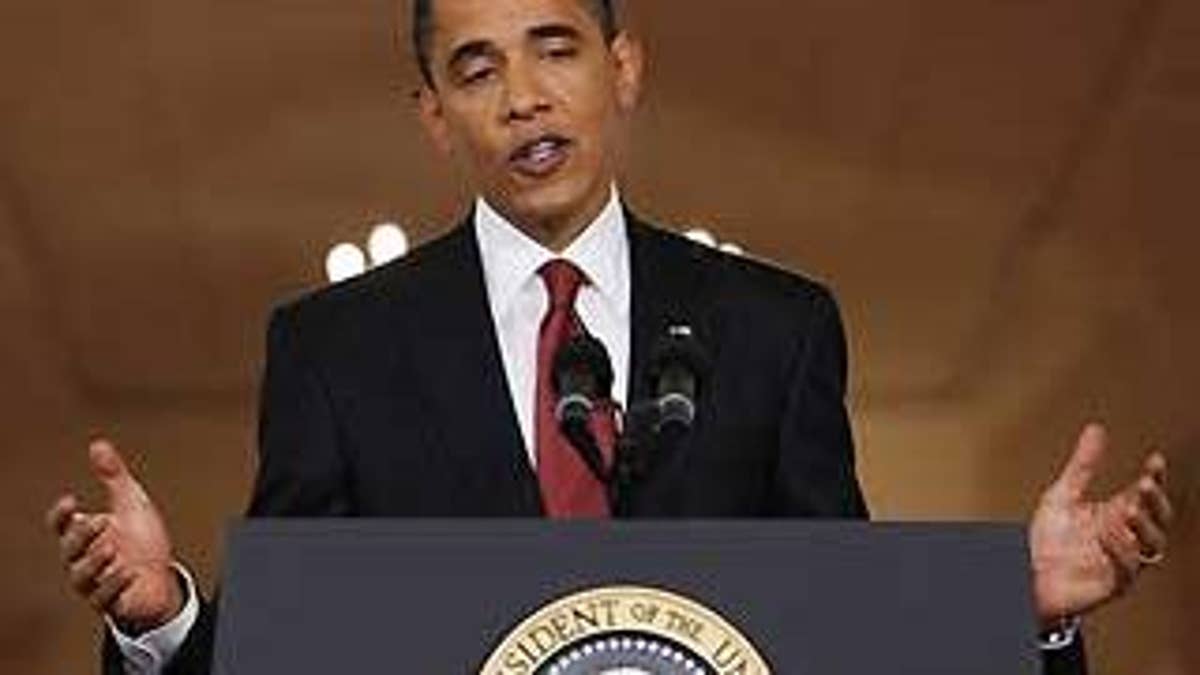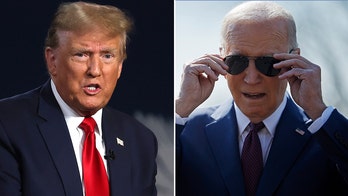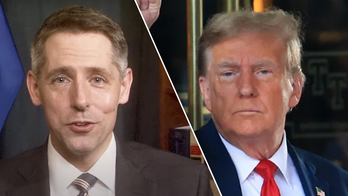
President Obama went on the defensive Tuesday night over his $3.6 trillion budget proposal, dismissing criticism of the plan and insisting that historic investments be made in education, health care and energy in order to ensure an economic recovery.
The president, in his second prime-time press conference, faced tough questions about recent projections that his budget would create trillions of dollars in deficits over the next decade and potentially double the national debt.
But Obama argued that his budget proposal is a critical peg in a comprehensive plan to attack the economic crisis "on all fronts," and prevent another comparable crisis one or two decades from now.
"Let's make the investments that ... put us on a pathway to growth as opposed to a situation in which we're not making those investments and we still have trillion-dollar deficits," he said. Obama said the biggest cause of long-term deficits is "huge health care costs," which his budget seeks to address.
And he said his budget, even by the most conservative estimates, would still cut the annual deficit in half in five years.
Despite growing concern that the proposed $3.6 trillion in spending is a recipe for financial instability, Obama took to the airwaves Tuesday to try to convince the public that his budget is an engine, not a hindrance, for economic growth.
He also used the appearance to try to settle public outrage over the millions of dollars in bonuses paid out to employees at bailed-out American International Group. That controversy distracted Washington for more than a week from the president's budget push.
Obama, though, got back to the business of selling his budget proposal Tuesday night.
"This budget is inseparable from this recovery because it is what lays the foundation for a secure and lasting prosperity," Obama said.
Senate Democrats have reportedly already begun paring down the budget, by cutting domestic spending and allowing tax cuts to expire after 2010.
But the president signaled Tuesday he was not concerned that his proposed investments in health care, education and energy could be threatened.
"We never expected when we printed out our budget that they would simply Xerox it and vote on it. We assume that it has to go through the legislative process," Obama said. "I am confident that the budget we put forward will have those principles in place."
The president, continuing to put a positive spin on the economic outlook, urged the public to have faith in an eventual turnaround.
"We will recover from this recession," Obama said. "But it will take time, it will take patience, and it will take an understanding that when we all work together; when each of us looks beyond our own short-term interests to the wider set of obligations we have to each other -- that's when we succeed."
The president said his economic agenda is already yielding "signs of progress," creating jobs and boosting sales.
He also accused his detractors of slamming his proposals without putting any alternatives of their own on the table.
Republicans have been especially critical of Obama's budget plan over the last few days, after a fresh estimate over the weekend found the plan would produce $9.3 trillion in deficits over the next decade -- or $2.3 trillion more than the administration anticipated.
"They are taking the United States down the road of destruction with the debt and the interest on the debt that our children and our grandchildren are going to have to pay," Sen. John Ensign, R-Nev., said Tuesday.
The administration's political capital was also threatened in recent days as public outrage, as well as partisan finger-pointing, grew following revelations that AIG paid out $165 million in bonuses.
Obama said Tuesday that he shares the outrage at AIG but that the public should not, going forward, "demonize" investors trying to make a profit.
He used the controversy over AIG, though, to push for new authority for the administration to seize struggling non-bank firms that could pose a threat to the rest of the economy.
Obama said such authority could have lessened the problems at AIG and that he anticipates "strong support" from the public and Congress for the new regulatory powers.
Asked why he was initially slow to respond to the AIG bonus controversy, Obama quickly answered: "It took us a couple days because I like to know what I'm talking about before I speak."
Obama, whose press conference was part of an intense public campaign to build support for his budget, has also planned an online town hall meeting for Thursday. And the president plans to meet with top bank CEO's Friday morning to discuss his economic recovery proposals.




